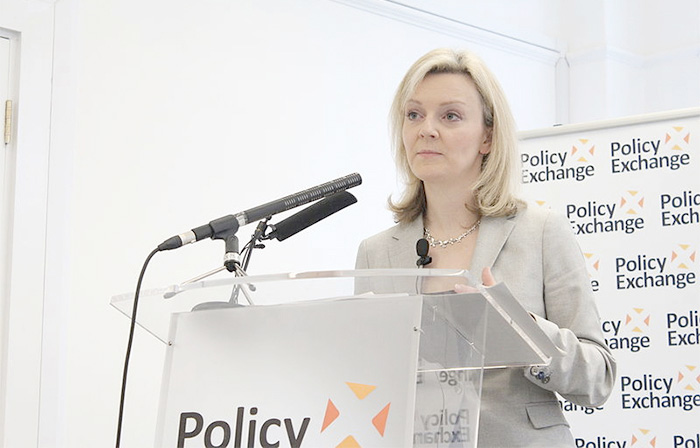
Ways of easing volatility in the milk sector were discussed by Secretary of State Liz Truss and the NFU in a meeting with President Meurig Raymond and dairy board chairman Rob Harrison.
In a constructive exchange, the difficulties faced by many farmers in the current market situation were recognised and a number of positive steps forward were identified for Defra, NFU and the industry as a whole.
Meurig Raymond said: “It’s understandable that government can do little about commodity price shifts, but I’m heartened by the continued enthusiasm from Liz Truss to listen to the industry on areas where they can make a difference.
“There are areas where we can work together with Defra on promotion, labelling, public procurement and taxation to ensure that we reach that bright future that I want all our dairy farmers to be a part of.
“The Secretary of State, like the NFU, recognised that long term there is positive future for the dairy sector and is keen to work with us to help it reach its potential.”
Top of the agenda was increasing the export potential of UK dairy and the NFU is pleased to see Defra investing in trade capacity building in Asia and looking at new trading opportunities further afield. The NFU would also encourage Government to tackle some of the barriers put in place to traditional markets.
The Minister agreed to raise NFU concerns on misleading origin labelling on British dairy products with EU Agriculture Commissioner Phil Hogan, when she meets him next week, given that origin labelling on dairy products is soon to be discussed at the European level. The NFU stressed that the UK Government should continue to support country of origin labelling.
NFU dairy board chairman Rob Harrison added: “The dairy board will help Government identify the areas they can help the dairy sector. But we’ll also continue with our work in helping farmers manage volatility, including developing different, innovative contract options, continuing our work on futures markets and increase farmer collaboration.
“We will continue to have regular meetings with Government, and will raise member concerns through the Dairy Supply Chain Forum later this month and in providing written and oral evidence to the EFRA inquiry into dairy prices”.
In a briefing to parliamentarians ahead of a Westminster Hall debate on dairy, Dr Judith Bryans, Chief Executive of Dairy UK, said “It is important that all political decision makers have as much factual information as possible at hand when they are debating the key issues affecting dairy.
"The recent establishment of an All Party Parliamentary Group on Dairy has been a real step forward in the ensuring that Parliamentarians are kept fully informed and the dairy industry.
“The industry welcomes today's debate as it will take a sustained collaborative effort to ensure that the positive long term prospects for the entire supply chain are realised."
On milk pricing, Dr Bryans briefed MPs: "Despite recent market developments, the underlying demand for dairy globally is increasing thanks to population growth, rising income and changes in dietary preferences. However, at the moment supply is outstripping demand which is having an impact on prices.
"No part of the UK dairy market can remain isolated from world market trends. Since raw milk can be switched between products, a weakness in one market feeds into all other UK markets. All markets are under severe pressure and unfortunately nobody is isolated from volatility, farmers and processors alike.
"Global markets are volatile and cyclical and are being disturbed by a combination of factors. The supply and demand issue has been aggravated by a build up of stock in China and the residual impact of the Russian Ban on imports.
"The latest Rabobank study foresees uneasy times until mid-2015 but it is important to bear in mind the cyclical nature of markets and long-term forecasts are strong."
